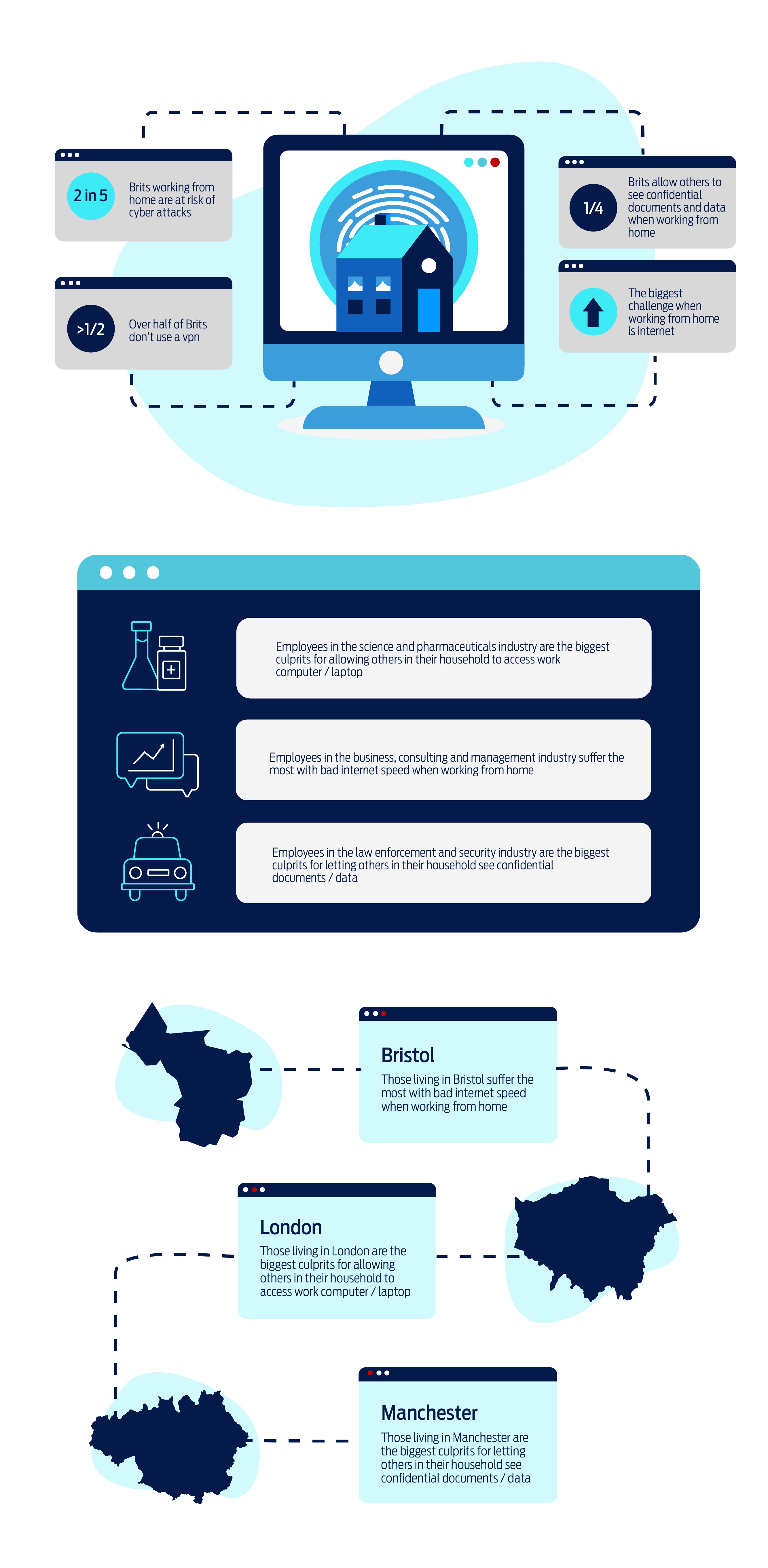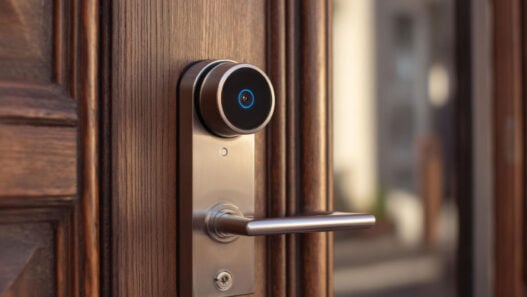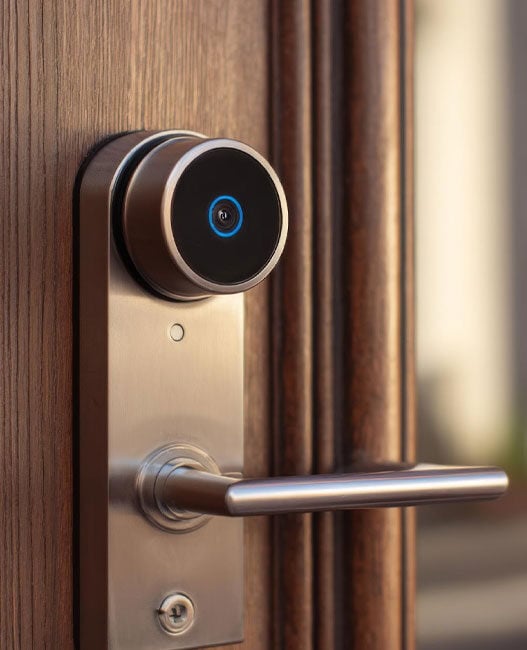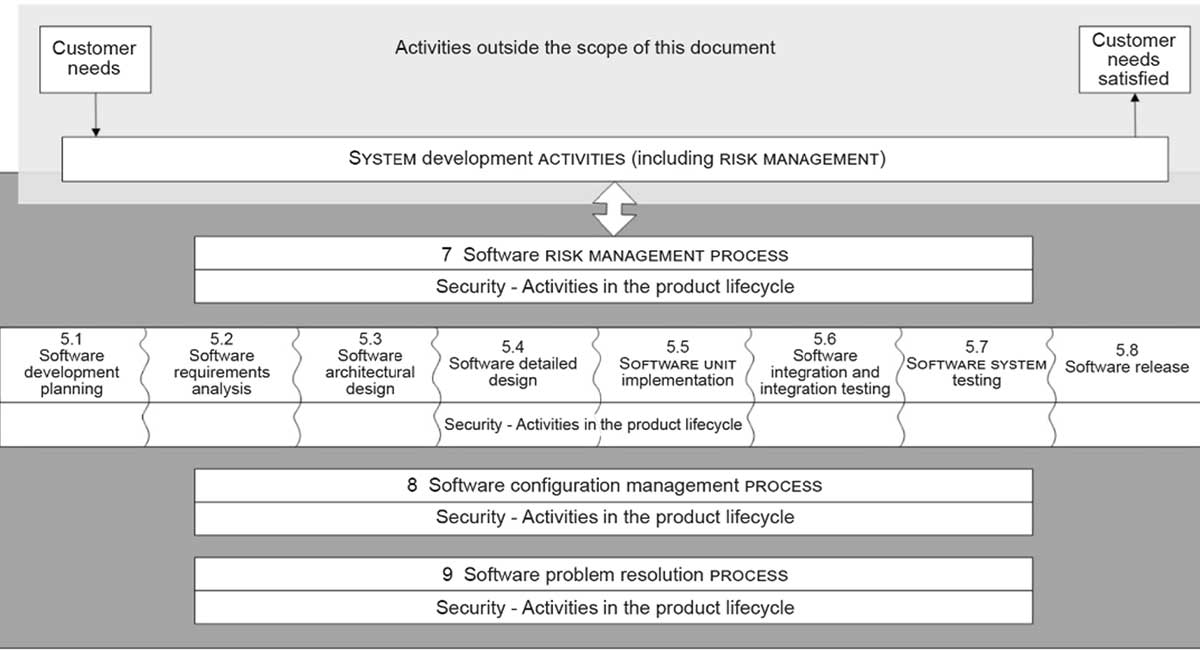The data reveals over half of the UK (54%) are currently working without a VPN; a simple browser encryption which keeps personal and company information out of the public domain when on a shared WiFi – like those found in cafes, libraries and shared households.
Manchester revealed as the biggest culprits for sharing confidential data
Manchester proudly boasts to be one of the biggest cities in the country and is rich with industrial heritage. What it may be less proud of however, is the fact that it’s the biggest culprit for sharing confidential data among those residents working from home
Despite this, the average Briton claims to currently feel secure and confident whilst remote working – are we falling victim to a false sense of security? And which cities and industries are most at risk? Check out the full findings below:

Tips for improving cybersecurity when working from home
1. Step up awareness to phishing scams linked to COVID-19
Attackers are exploiting anxiety around the pandemic, especially with phishing scams claiming to be related to COVID-19. You should be suspicious of emails asking you to renew any personal details, claiming to contain unexpected test results, or to open any files.
2. Use a VPN
The Fasthost study has shown that over half of Brits do not use a VPN (virtual private network) when working from home. A VPN is very important for improving online privacy and keeps it hidden from any cybercriminals
3. Back up your data
Data can be lost in numerous ways. To prevent data loss, be sure to back-up your device routinely – usually during out of office hours. Have a backup power system in case of a local power cut and avoid, where possible, using small items such as USB sticks to store data which can be easily misplaced.
4. Update your virus protection software
Company smart devices will usually have up-to-date virus protection software, but these need to be updated every so often, especially if you’re out of the office. Having out-of-date virus protection can pose a risk to data security and computer health.
5. Lock your device while you are not using it
If you work in spaces which are shared with people that you don’t work with – whether that is public transport, a café, a shared home, or a library – you should be careful with your device and data. When in a situation like this, be sure to lock your device any time you’re not using it.
Michelle Stark, Sales and Marketing Director at Fasthosts, commented: “It’s sad to see the risks of cybercrime so prevalent whilst many Britons are working from home. Keeping you and the business safe online is critical to keep confidential data secure. We urge all consumers to read our top tips, be more mindful and seek the correct training whilst working from home”















